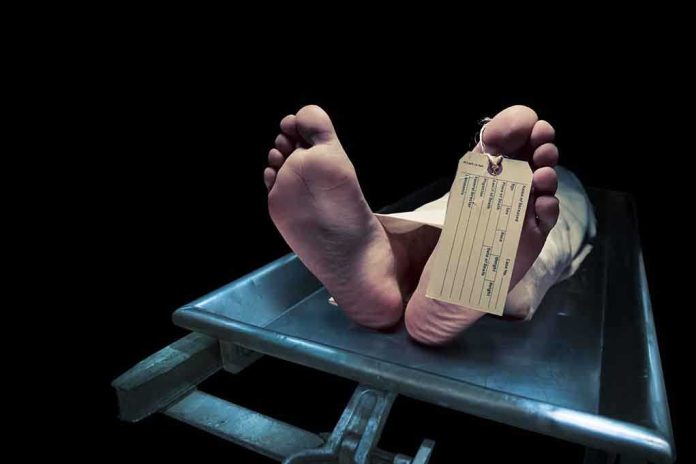
A federal Customs and Border Protection (CBP) agent’s tragic suicide in front of his girlfriend underscores the alarming pressures faced by law enforcement officers.
Story Highlights
- A CBP agent died by suicide in a NYC apartment on October 29, 2025.
- The incident highlights ongoing mental health challenges within CBP.
- The agent’s girlfriend was a direct witness to the tragedy.
- Concerns about mental health support for law enforcement are rising.
The Incident and Immediate Reactions
On October 29, 2025, a federal CBP agent died by suicide in an apartment in New York City, witnessed by his girlfriend. Law enforcement sources confirmed the incident, which has drawn significant attention to the mental health challenges faced by those in federal law enforcement roles. The event occurred in a private residence, which is uncommon, as these incidents typically happen in the line of duty. This tragedy has sparked discussions about the pressures and lack of adequate mental health resources available to federal agents.
Federal CBP agent dies by suicide in front of girlfriend inside NYC apartment: sources https://t.co/yRFBgiWH4k pic.twitter.com/jDVEHhH13C
— New York Post (@nypost) October 29, 2025
Understanding the Pressures on CBP Agents
CBP agents are tasked with the vital role of safeguarding America’s borders, which involves significant stress and scrutiny. The agency has faced criticism over its working conditions and the mental health support available to its officers. Historically, there has been a troubling pattern of suicides among CBP agents, pointing to systemic issues within the agency. The recent incident in New York City, a location not typically associated with CBP operations, suggests this agent might have been off-duty or in a non-traditional assignment, exacerbating personal stressors.
Impact and Broader Implications
This incident has prompted calls for a reevaluation of mental health resources within CBP and other federal law enforcement agencies. The immediate impact on the agent’s girlfriend, who witnessed the suicide, and his family cannot be overstated. More broadly, this tragedy has intensified the debate on how to better support those who protect the nation’s security. Experts have long warned that law enforcement officers face higher suicide rates than the general population, driven by occupational stress, exposure to trauma, and the stigma surrounding mental health challenges.
There are increasing demands for systemic changes, including improved access to counseling and peer support. Advocacy groups emphasize the urgent need for cultural shifts within law enforcement to reduce stigma and encourage help-seeking behaviors. This incident may serve as a catalyst for reform, prompting policy discussions on suicide prevention and officer wellness programs.
Sources:
Southern Border Communities Coalition, “Fatal Encounters with CBP,” 2024-2025.




